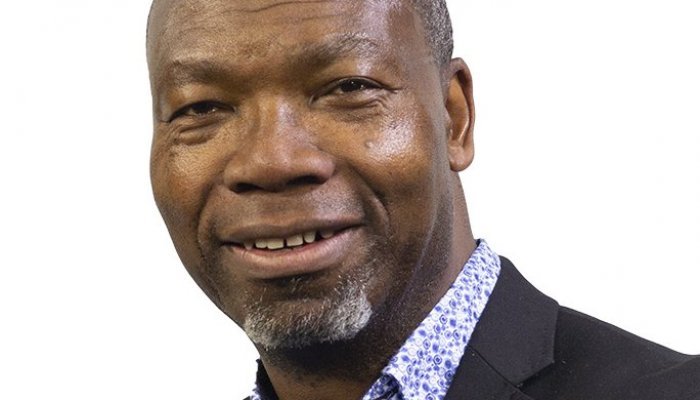The modern business environment requires smart, agile, and visionary leaders who can adapt to operating conditions that are rapidly evolving. Organisations have, over time, faced various challenges, from new competition to technological advancements, and most recently, the Covid-19 pandemic. The blueprint for tackling old and new challenges, the positioning of the various business units and operations, among others, is steeped in the discipline that is corporate strategy.
An organisation’s overall strategy or corporate strategy provides a compass for navigating new innovations and disruptors. This organisational game plan also serves as a guiding light for overall growth, while keeping the business ahead of the competition. The discipline of corporate strategy has revolutionised the way organisations conduct their business. Before the advent of corporate consultancy firms that specialise in helping entities formulate and execute their strategies, there was not much consideration for the importance of effective strategic thinking. Over time, however, it became apparent that the success of the organisation depended on a solid corporate strategy, and the participation of everyone in the business.
Thus, there has been growing demand for people who are qualified to design the overall frameworks by which entities conduct business. Business schools the world over play a pivotal role in preparing executives, general managers and ordinary employees to be ready to deal decisively, and strategically, with developments in the corporate environment. For the past three years, GIBS has been offering an MPhil in Corporate Strategy. With this academic offering, the school’s promise is to "equip graduates with high-level business skills in the areas of strategic foresight, strategic management and strategic leadership".
The MPhil Corporate Strategy is a specialised, academically rigorous postgraduate Master's degree programme. Students who have completed an honours degree or what is known as a South African Qualifications Authority (SAQA)-accredited NQF 8 qualification can apply for the two-year part-time programme. The faculty does also make provision for students who do not have a postgraduate qualification, and for those with no undergraduate qualifications, but who do have extensive work experience.
GIBS’ MPhil in Corporate Strategy has been designed to integrate theory on key aspects of strategy, with insights from actual business practice, across a range of industry contexts. GIBS faculty member and corporate strategy lecturer Buyani Zwane says the GIBS programme is strengthened by an impressive and accomplished team of academics who collectively have extensive experience in navigating corporate and business spaces.
“At GIBS, one of the things that we pride ourselves on is that we have been able to attract the kind of faculty that is not theorising only. It is a faculty that is steeped in business. So, what they share in the classroom is not all book-based, they also have street smarts. Many of them have been general managers and executives. They have served in the boardrooms, so they know what investors are looking for,” explains Zwane.
Exploring the fundamentals
During the MPhil programme, students explore the origins of corporate strategy and the extensive volume of academic work produced in this discipline. Corporate strategy took hold in the 1960s with the foundation of the Boston Consulting Group (BCG) in the United States.
The premise of corporate strategy is to foster cooperation between business units, create value for the organisation, and position the business to be able to maximise opportunities in the market. Its evolution has sparked the emergence of a new academic discipline that is constantly evolving in line with a changing world. At GIBS, students engage, challenge and expand on the works of trailblazing theorists such as Harvard Business School Professor Michael E Porter, who has been dubbed the father of modern strategy, and many other illustrious scholars. It was the founder of BCG, Bruce Henderson, who inspired generations of consultants to consider the importance of preparing business entities "to tackle their most important challenges and capture their greatest opportunities".
Students who choose to enroll for the GIBS MPhil in Corporate Strategy open themselves to a learning approach that allows them to be exposed to real-world situations through a range of mechanisms including case studies, immersions and practitioner engagements. Students are challenged to work independently and in groups, to learn to exercise strategic decision making in all scenarios.
So then the question arises, do business leaders need to have a formal qualification to be able to formulate strategies for their corporate entities? Zwane says GIBS’ close ties with the business community and understanding of what the various industries need to succeed is an advantage. Through its executive learning programmes, GIBS has positioned itself as a leader in teaching general management, empowering graduates to improve as individuals and team players in their various organisations.
“As the business school for business, we focus on general management and aim to significantly improve responsible individual and organisational productivity and performance in South Africa, the broader African business environment, and the world. We do this through high-quality business and management education. Action learning programmes and projects are critical to what we do in the business school environment. Case studies assist us to measure how people would, as managers or professionals, handle similar incidents in the corporate environment. It is the test drive before the main ride,” he says.
The Covid-19 pandemic has prompted the corporate world to be agile in finding solutions to keep their businesses running optimally. Before the onset of the pandemic, the idea of working from home was a far-removed consideration. Now, companies the world over are finding innovative ways to get the job done. In South Africa, for instance, load-shedding has become so common that, in the same way, corporate entities have had to figure out new ways to continue production and reach their targets amid the ongoing electricity blackouts. Due to the demands of an ever-changing modern business environment, the corporate space has become increasingly competitive, with organisations scrambling to secure the best executives and strategists.
Finding innovative solutions to modern problems
The GIBS approach to business executive education is to inspire exceptional performance in the quest to advance the business community. The faculty recognises the profound shifts in industry structures brought about by innovations in technology and a rapidly changing geopolitical landscape. Many of the business models and approaches that have driven operations for decades are fast becoming irrelevant and outdated. Thus, the MPhil in Corporate Strategy provides students with the necessary tools to be able to find modern solutions to modern problems.
Zwane says feedback gathered from regular engagements with business leaders and former students, together with the extensive research conducted in the marketplace, influences the academic offerings at GIBS. Frequent internal and external assessments are done to evaluate whether GIBS’ academic programmes are on par with market demands and needs.
In 2020, the GIBS executive education offering was ranked in the global top 50 by the prestigious Financial Times executive education ranking. This and many other rankings are testament to the work and commitment of the GIBS faculty in preparing students to compete confidently with some of the best in the world.
“There is a demand because more organisations are finding it necessary to be agile. They need to be able to adapt much quicker to what is required of them. So, it is vital that what we do speaks to existing needs and predicts future needs. When we look at what happened in the advent of the Covid-19 pandemic, for instance, you find that organisations are increasingly needing to ensure that in their arsenal of offerings, they have all the essential elements that will boost their capacity perennially,” Zwane explains.
Educating leaders for the world
The core subjects in the MPhil in Corporate Strategy programme are prescribed, although students can customise their study path to their interests and preferences, within the domain of corporate strategy, through their choice of a wide range of electives and the preparation of a substantive research report. This programme is rigorous and requires a significant investment of time and energy. Zwane says the faculty at GIBS is looking to attract students who are prepared to contribute meaningfully to the growth of the discipline of corporate strategy.
“We are seeking to attract are people who have come to appreciate that they have a role to play in improving how their organisations function. We are also looking for people with heightened academic rigour, individuals who will interrogate the curriculum, and invest time and effort towards building a body of research that will help this discipline advance,” says Zwane.
During the intense research component, MPhil students will be able to conduct advanced research from the wide range of topics on corporate strategy, from development to implementation.
Upon completion of the programme, students will be equipped to become leaders in the field of strategy. In the second year of study, students can pursue the global module. This route is an optional additional module which comprises an international trip, to help understand the key teachings of international business. Students are given several international destinations to choose from.
Choosing to enroll for the MPhil in Corporate Strategy at GIBS is not only about acquiring an academic qualification. Students also gain access to experienced and renowned academics who can help them navigate the corporate maze and help them elevate their standing and connect them to important captains of industry, which will benefit them beyond graduation.
Students who wish to continue to the doctoral level have two streams to choose from, the PHD stream and the DBA stream. The MPhil is recognised as a level nine qualification according to the South African National Qualifications Framework. The design of this qualification is intended to equip students with advanced research skills that will enable them to pursue a doctoral degree.








